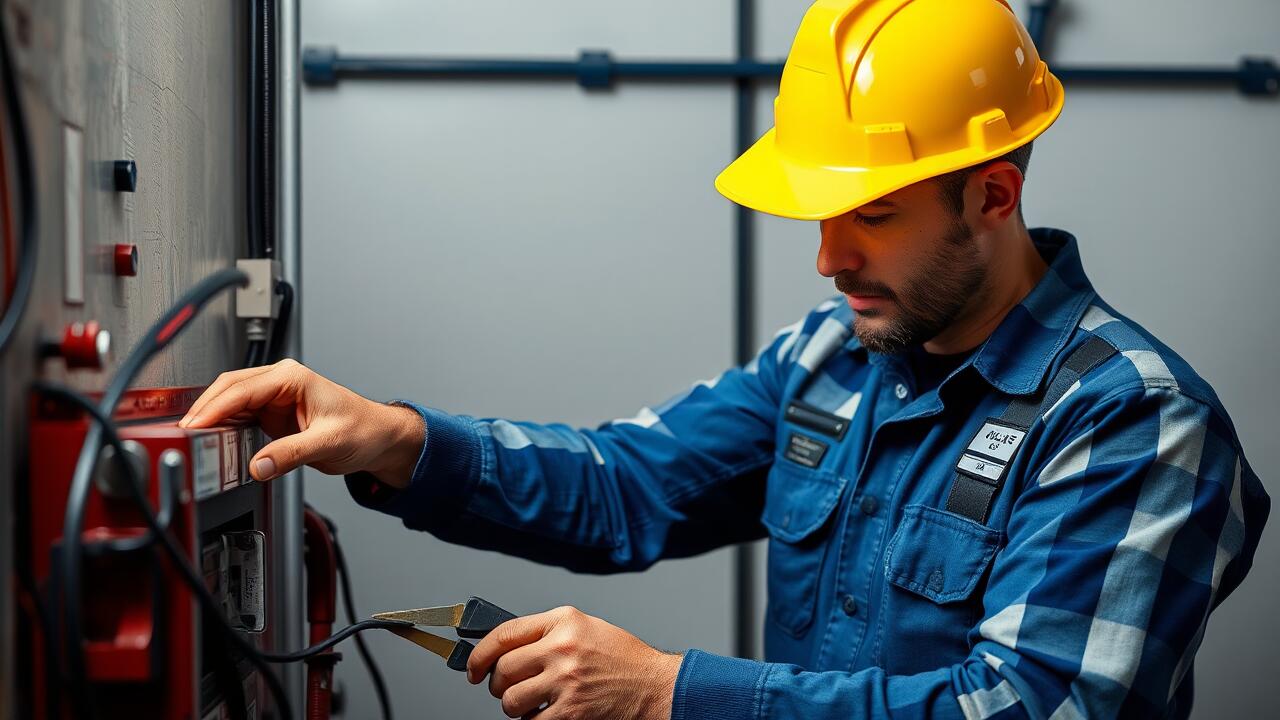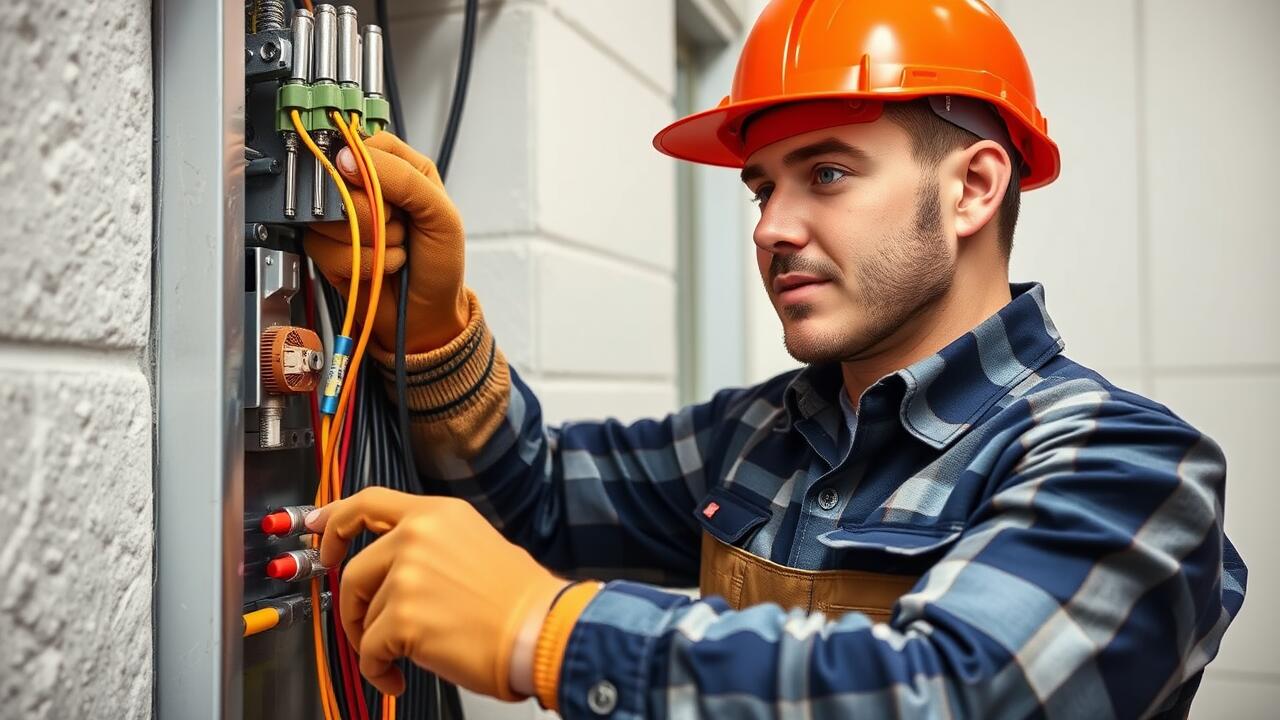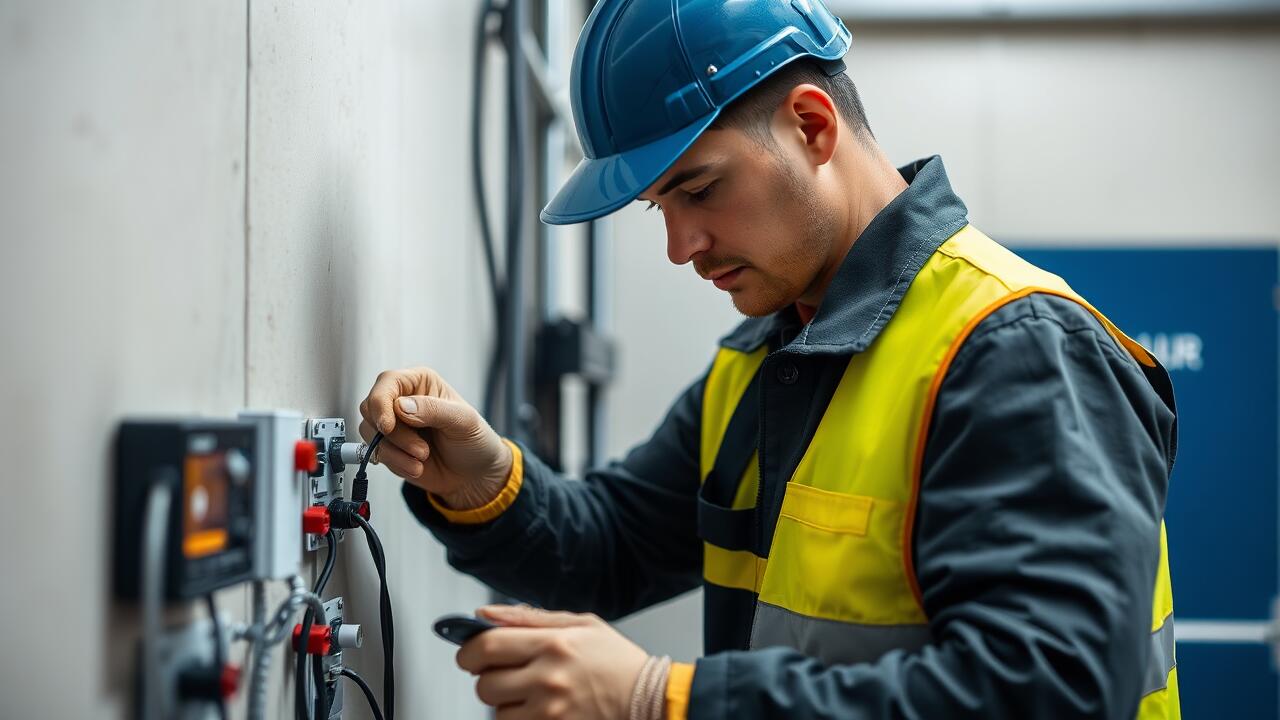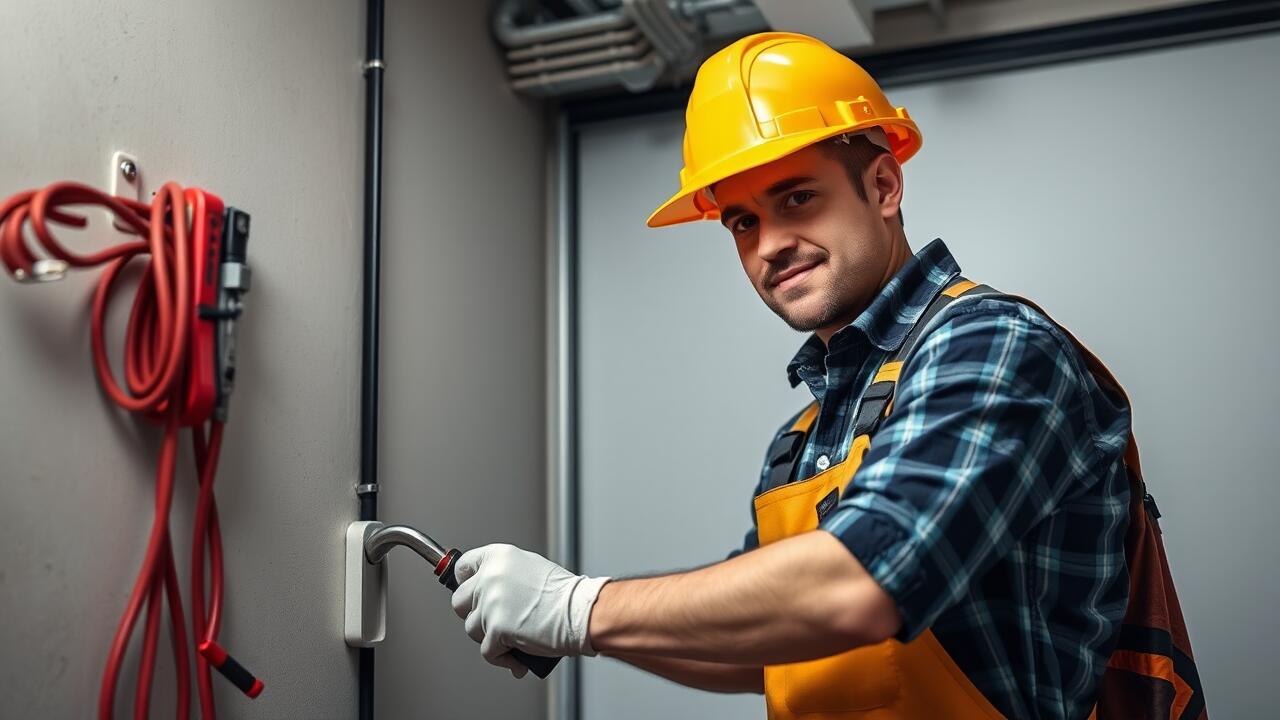
Installation Guidelines for Circuit Breakers
When installing circuit breakers, it is essential to follow the manufacturer’s guidelines for proper placement and wiring. Make sure to turn off the main power supply before starting the installation process. This prevents electrical shock and ensures a safer working environment. Determine the appropriate size and type of circuit breaker based on the specific electrical load requirements of your home or business. If unsure, consulting with a professional can help clarify choices.
Hiring an Electrician in Houston can ensure a correct installation aligned with local codes and safety standards. The electrician will assess the electrical panel and existing wiring to confirm compatibility and safety. Proper grounding and bonding practices must be observed during installation to reduce the risk of electrical fires and faults. Regular inspection of the circuit breaker after installation can prevent potential issues and enhance overall system reliability.
Best Practices for Safe Installation
When installing circuit breakers, it is crucial to select the appropriate type and size for your specific electrical system. Always ensure that the breaker is rated for the maximum load it will handle. This involves calculating the total load of the circuits it will protect. Following manufacturer guidelines can prevent overheating and potential tripping issues. Additionally, keep in mind that the installation environment plays a significant role. Circuit breakers should be mounted in dry, accessible locations to facilitate maintenance and monitoring.
Hiring a qualified electrician in Memorial, Houston, can significantly enhance safety during installation. An experienced electrician possesses the knowledge to navigate local codes and regulations, ensuring compliance with safety standards. Proper grounding and bonding are essential to minimize the risk of electrical faults. Regularly scheduled inspections by a professional can also identify any potential problems before they escalate. Establishing a routine maintenance plan contributes to the reliability and longevity of your circuit breakers.
Common Issues with Circuit Breakers
Circuit breakers can experience various issues that may compromise their effectiveness. One common problem is frequent tripping, which can result from overloaded circuits or faulty appliances drawing too much current. In such cases, it is essential to identify the source of the overload to prevent future interruptions. Additionally, some circuit breakers may fail to trip when necessary, potentially leading to dangerous situations like electrical fires. This malfunction often indicates the need for inspection or replacement.
Another issue involves physical damage to the circuit breaker itself. Signs of wear or burning, such as discoloration or melted components, should not be overlooked. Regular inspection is crucial in identifying these problems early. If a circuit breaker is showing signs of distress, consulting a qualified professional, such as an electrician in Houston, can help assess the situation and ensure safe operation. Taking prompt action can mitigate risks and extend the lifespan of your electrical system.
Troubleshooting and Maintenance Tips
Regular troubleshooting and maintenance of circuit breakers can help ensure their longevity and reliable performance. Inspect the circuit breaker regularly for any signs of wear or damage, including burning or corrosion. Tripped breakers might indicate an overload, short circuit, or fault in the electrical system. Identifying the underlying problem is crucial to prevent further issues and improve safety. If a breaker frequently trips, it's advisable to consult an experienced electrician in Gulfton, Houston to diagnose the cause effectively.
Cleaning circuit breakers is part of standard maintenance procedures. Dust buildup can affect their performance, so it's important to keep the breaker panel clean and free of debris. Ensure that the breakers are turned off before attempting any maintenance. If any repairs or replacements are needed, proper tools and techniques should be utilized to avoid damaging the breaker or causing safety hazards. Professional help from an electrician in Gulfton, Houston can provide peace of mind and guarantee that the work meets local electrical codes.
The Role of Circuit Breakers in Safety Standards
Circuit breakers serve as crucial components in maintaining safety standards within electrical systems. They protect circuits from overloads and short circuits, minimizing the risk of electrical fires and equipment damage. By interrupting the flow of electricity when issues arise, circuit breakers ensure that the electrical system remains stable and secure. Following electrical codes and regulations helps ensure that these devices function effectively and consistently.
Engaging the services of a qualified electrician in Houston can greatly enhance the safety of any electrical installation. Professionals possess the expertise to select and install appropriate circuit breakers that match the specific requirements of a building's electrical system. Adherence to local and national safety standards is vital for ensuring that circuit breakers perform optimally and provide the necessary level of protection for both people and property.
Compliance with Electrical Codes
Compliance with electrical codes is crucial for ensuring the safety and reliability of electrical systems. These codes are established to minimize risks such as electrical fires and shocks. Following the National Electrical Code (NEC) and local regulations provides a framework that guides electricians in their installations and repairs. Each region may have specific amendments to the NEC, which further emphasizes the importance of adhering to local standards.
Hiring a qualified professional, such as an electrician in Montrose, Houston, can help ensure that all work is compliant with these regulations. An experienced electrician understands the intricacies of local codes, ensuring that installations meet all safety requirements. This compliance not only protects property but also enhances the safety of occupants. Regular inspections and adherence to these codes can significantly reduce the risk of electrical hazards.
FAQS
What is a circuit breaker, and why is it important?
A circuit breaker is an electrical device designed to protect an electrical circuit from damage caused by overload or a short circuit. It is important because it automatically interrupts the flow of electricity in dangerous situations, helping to prevent electrical fires and equipment damage.
How do I know if my circuit breaker needs to be replaced?
Signs that your circuit breaker may need replacement include frequent tripping, visible damage or burning, difficulty in resetting, or if it no longer provides protection against electrical overloads. If you experience these issues, it's advisable to consult a licensed electrician.
Can I install a circuit breaker myself?
While some homeowners may choose to install circuit breakers themselves, it is generally recommended to hire a licensed electrician. Proper installation ensures safety, compliance with local electrical codes, and minimizes the risk of electrical hazards.
What are some common issues that can occur with circuit breakers?
Common issues with circuit breakers include tripping due to overload, failure to reset, corrosion of connections, and physical damage from electrical surges. Regular maintenance and troubleshooting can help identify these problems early.
How do circuit breakers comply with electrical codes?
Circuit breakers must meet specific standards set by local electrical codes and regulations, which are designed to ensure safety and reliability. Compliance involves using circuit breakers that are rated for the appropriate voltage and current levels and installed correctly according to the guidelines outlined in the National Electrical Code (NEC) or other relevant standards.




